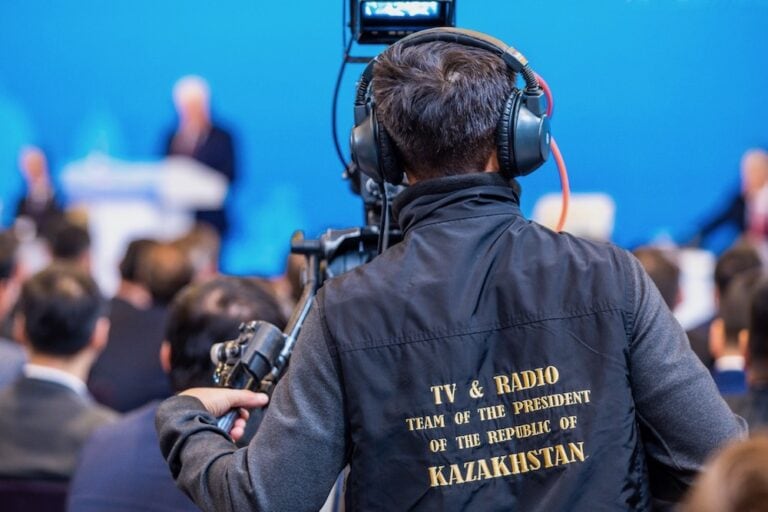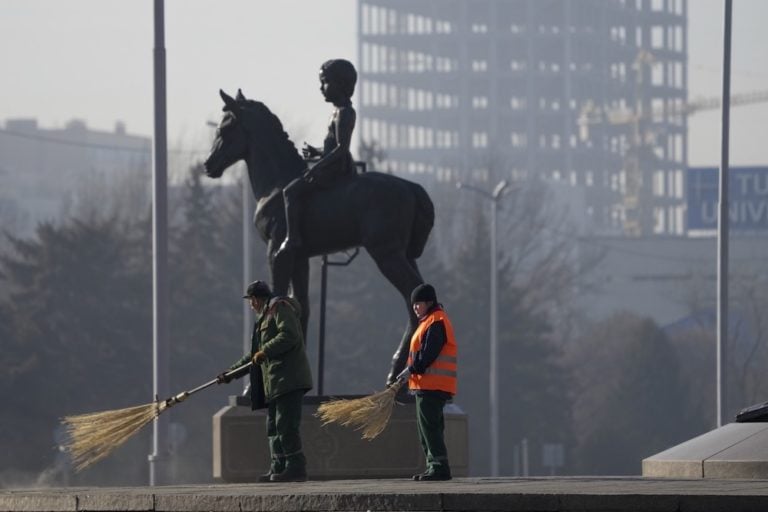(Freedom House/IFEX) – The following is an abridged version of a 12 June 2008 Freedom House press release: Kazakhstan’s Record on Human Rights, Democratization and Fulfilling Its OSCE Chairmanship Commitments Executive Summary: During its campaign for the Chairmanship of the OSCE, a number of Participating States raised questions regarding Kazakhstan’s suitability for the position given […]
(Freedom House/IFEX) – The following is an abridged version of a 12 June 2008 Freedom House press release:
Kazakhstan’s Record on Human Rights, Democratization and Fulfilling Its OSCE Chairmanship Commitments
Executive Summary: During its campaign for the Chairmanship of the OSCE, a number of Participating States raised questions regarding Kazakhstan’s suitability for the position given its poor record on human rights and democratization. In response to these concerns, at the Madrid OSCE Ministerial last November, Kazakhstan’s Foreign Minister committed his country to amend its laws on elections, political parties, local governance and the media by the end of 2008 to bring them into compliance with international norms.(. . .)
The period leading up to Kazakhstan’s assumption of the OSCE Chairmanship provides a window of opportunity for progress. So far, however, little has been done to improve the rights situation in Kazakhstan since Madrid. Notwithstanding ratification by parliament of the Optional Protocol to the Convention against Torture, there have been some significant steps backwards so far in 2008 in relation to:
– additional constraints on freedom of expression, including blocking access for several weeks to Radio Free Europe/Radio Liberty’s English- and Kazakh-language websites;
– the continued stifling of freedom of assembly; and
– the alarming situation regarding freedom of religion, manifested in deliberate and selective raids on small religious communities, their harassment by the pro-government media, and the introduction in parliament in early April of draft amendments to the Law on Religion that would severely impede religious minorities’ ability to associate freely.
So far in 2008, the government of Kazakhstan has not implemented any significant domestic reforms, including any of those promised in Madrid.
Post-Madrid Developments
(. . .)
Reform of the Media Law:
The Ministry of Justice has begun work on amending media legislation. Key areas in need of reform include reducing criminal sanctions for defamation and liberalizing registration procedures for media outlets. Previous attempts in 2006 and 2007 to adopt a new law on media, which were initiated by a group of MPs and supported by the journalistic community, were blocked by the Government and the relevant draft laws were subsequently recalled from the Parliament. Journalists and local human rights organizations have harshly criticized the new draft law. In response to this criticism and pressure from the OSCE Representative on Freedom of the Media, the Ministry of Culture and Information held a round table on February 25 2008 to discuss the legislation. After this meeting, the government formed a working group of 13 officials and six NGO representatives to work on the draft law. The working group has only met once, however. Moreover, Ministry officials have stated that the working group’s jurisdiction will be limited to peripheral issues, and will not include de-criminalization of libel or liberalization of registration procedures.
Active steps are urgently needed to reinvigorate the process of drafting a new law; otherwise the legislation on media will continue to be grossly non-compliant with international standards, including Kazakhstan’s OSCE commitments. (. . .)
Recommendations:
The Government of Kazakhstan must take urgent action to implement the political commitments made by Minister Tazhin at the Madrid Ministerial Meeting. Before the end of this year, the government needs to take concrete steps, which should include, but not be limited to, the following:
(. . .)
Reform of Media Law: The newly created working group on media law revisions should embrace all of the OSCE’s recommendations to improve the draft legislation. It should at a minimum address liberalization of the requirements for registration of mass media outlets and decriminalization of libel. The draft law needs to take into account the views of the public and media outlets and should be sent to the OSCE Representative on Freedom of the Media and receive its support before it is adopted by parliament.
(. . .)
For the complete Freedom House report on Kazakhstan, see: http://www.freedomhouse.org/uploads/special_report/66.pdf
Updates alerts on the media law: http://ifex.org/en/content/view/full/87018 and http://ifex.org/en/content/view/full/79144


